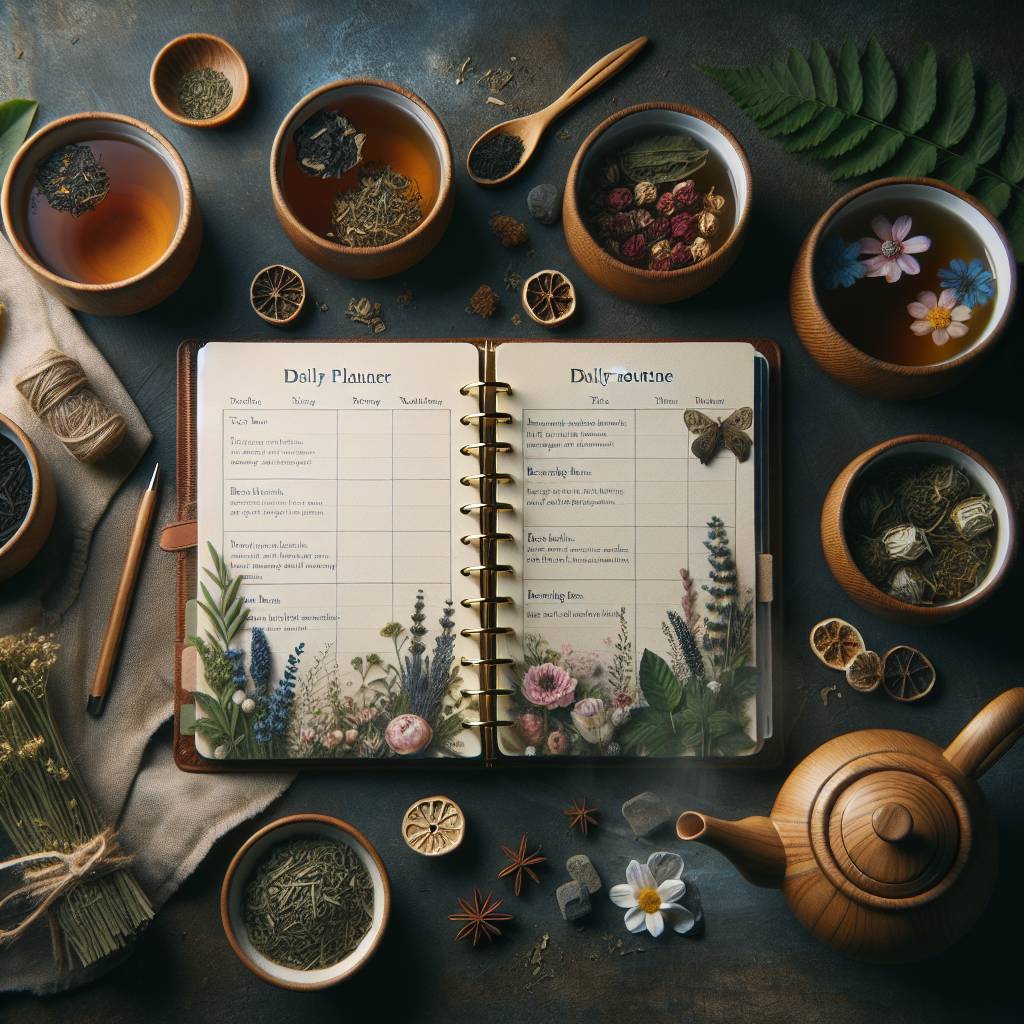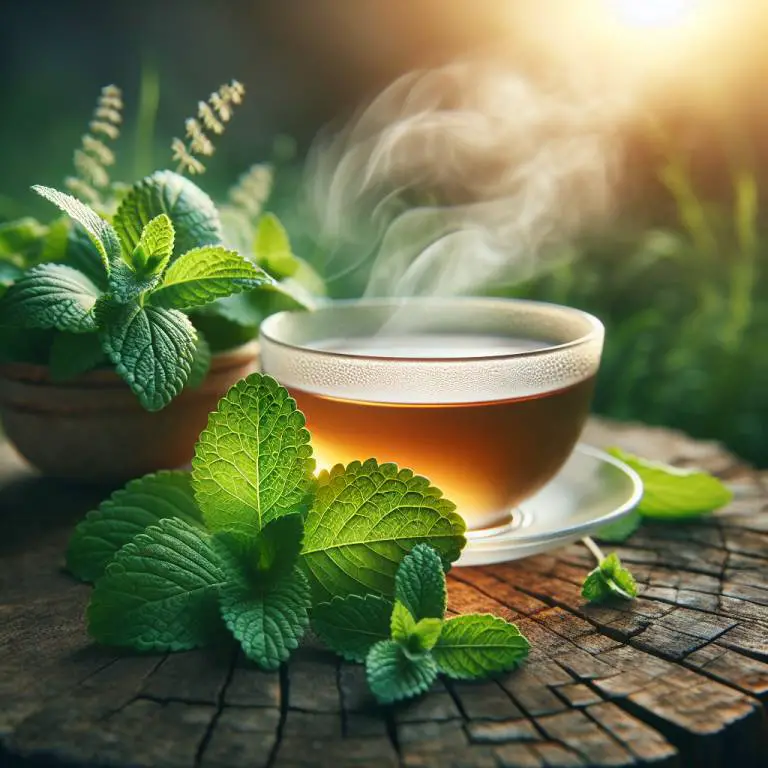How to integrate herbal teas into an asthma management plan
To integrate herbal teas into an asthma management plan, start by choosing teas known for their respiratory benefits, such as ginger, peppermint, or licorice root tea. Drink a cup of your chosen herbal tea daily to help soothe your airways and reduce inflammation. Always consult with your healthcare provider before adding herbal teas to ensure they complement your current asthma treatments and do not interfere with any medications you are taking.

What are the best herbal teas for asthma relief?
Many people find comfort in a warm cup of herbal tea, especially those suffering from asthma. Among the most recommended varieties for easing asthma symptoms are ginger, peppermint, and licorice root teas. These teas are known for their soothing properties and ability to help relax the airways, making breathing easier.
Ginger tea, in particular, is celebrated for its anti-inflammatory effects which can help reduce airway inflammation. Peppermint tea contains menthol, which acts as a natural decongestant, helping to break down mucus. Licorice root tea is another excellent choice as it helps soothe the throat and also possesses anti-inflammatory properties.
Which active ingredients in herbal teas are beneficial for asthma?
The effectiveness of herbal teas in managing asthma symptoms can be attributed to their active ingredients. For instance, ginger contains compounds like gingerols and shogaols that have potent anti-inflammatory and antioxidant effects. These compounds can help reduce inflammation in the airways and alleviate some of the discomfort associated with asthma.
Peppermint tea owes its benefits to menthol, which helps relax the muscles of the respiratory tract. This relaxation can ease breathing in people with asthma. Licorice root contains glycyrrhizin, which has been shown to have anti-inflammatory properties that may benefit those with asthma by reducing airway inflammation.
Uncover teas that can help manage asthma. Learn about their healing effects and preparation methods.
How can herbal teas complement traditional asthma treatments?
Herbal teas should not replace prescribed medications but can serve as a complementary treatment under a healthcare provider’s guidance. Drinking these teas alongside traditional asthma treatments might enhance overall respiratory health and provide additional symptom relief. The soothing effect of warm tea can also promote relaxation, reducing stress levels that may trigger or worsen asthma symptoms.
Incorporating herbal teas into an asthma management plan could potentially improve quality of life by offering a natural way to soothe mild symptoms. However, it’s crucial to consult with a healthcare professional before adding herbal teas to your regimen to ensure they don’t interfere with existing treatments or medications.
When is the best time to drink herbal tea for asthma symptoms?
The timing of drinking herbal tea can influence its effectiveness in relieving asthma symptoms. Many individuals find it beneficial to drink a warm cup of herbal tea early in the morning or before bedtime. In the morning, it can help clear any overnight buildup in the airways; at night, it may aid in relaxing the muscles around the airways for better sleep.
Additionally, consuming these teas during or after exposure to an asthma trigger—such as cold air or exercise—can provide quick relief from sudden symptoms. It’s important to listen to your body and determine what timing works best for you while keeping consistent with any prescribed medication schedules.
| Herbal Tea | Benefits | How to Use |
|---|---|---|
| Ginger Tea | Anti-inflammatory properties, can help reduce airway inflammation. | Drink 1-2 cups daily. Fresh ginger root can be steeped in boiling water for 5-10 minutes. |
| Peppermint Tea | Menthol may help relax the muscles of the respiratory system. | Drink 1 cup daily. Avoid if you have GERD as it may worsen symptoms. |
| Licorice Root Tea | Soothing effect on the throat, anti-inflammatory properties. | Drink 1 cup daily. Not recommended for prolonged use or for those with high blood pressure. |
| Mullein Tea | Traditionally used for respiratory health, may help clear mucus from the lungs. | Drink 1-2 cups daily. Steep dried leaves or flowers in hot water for 15 minutes before drinking. |
| Eucalyptus Tea | Eucalyptol can act as a bronchodilator, improving airflow to the lungs. | Drink 1 cup daily. Also consider inhaling eucalyptus steam by adding a few leaves to hot water. |
| Turmeric Tea | Curcumin has anti-inflammatory effects that might benefit asthma control. | Add turmeric to your regular tea or milk, or buy pre-made turmeric tea bags. Drink 1-2 cups daily. |
| Green Tea | The antioxidant properties can support overall lung function and health. | Limited to 1-2 cups per day due to caffeine content. Opt for decaffeinated versions if sensitive to caffeine. |
Are there any risks or side effects of using herbal teas for asthma?
When considering herbal teas for asthma relief, it’s important to be aware of potential risks and side effects. Not all herbs are safe for everyone, and some can interact with medications or trigger allergic reactions. For instance, certain herbs might increase heart rate or blood pressure in some individuals.
It’s also crucial to consult with a healthcare provider before starting any new herbal regimen, especially for those with severe asthma or who are pregnant. Over-reliance on herbal teas instead of prescribed medication can lead to uncontrolled asthma symptoms. Always use herbal teas as a complementary treatment rather than a primary solution.
How to prepare and consume herbal teas effectively for asthma management?
To get the most benefit from herbal teas for asthma, proper preparation and consumption are key. Start by choosing high-quality, organic herbs known to support respiratory health. Loose leaves often provide a fresher, more potent tea than pre-packaged bags. Boil water and let it cool slightly before pouring over the herbs to preserve their beneficial properties.
Drinking one to two cups daily can help manage mild asthma symptoms and improve overall respiratory health. However, consistency is important; benefits may take several weeks to become noticeable. Remember not to add milk or sugar as they can trigger mucus production which is counterproductive for people with asthma.
Can lifestyle changes enhance the effectiveness of herbal teas in managing asthma?
Incorporating lifestyle changes alongside drinking herbal teas can significantly enhance their effectiveness in managing asthma. Regular exercise helps improve lung function and reduce symptoms. However, it’s essential to choose low-impact activities that don’t trigger asthma attacks, such as swimming or walking.
Maintaining a healthy diet rich in fruits, vegetables, and omega-3 fatty acids can also support respiratory health. Avoiding known allergens and pollutants inside your home by keeping it clean will further reduce the risk of asthma flare-ups. These combined efforts make herbal teas more effective in controlling asthma symptoms.
Final Thoughts
Herbal teas offer a natural way to complement traditional asthma treatments but should be used wisely under professional guidance due to potential risks and side effects. Proper preparation and regular consumption are crucial for achieving the best results from these natural remedies.
Lifestyle changes such as exercising regularly, eating a healthy diet, and avoiding allergens play an essential role in enhancing the effectiveness of herbal teas in managing asthma symptoms. By combining these strategies with your prescribed medical treatments, you can enjoy better control over your asthma and improve your overall quality of life.







